How an east African border is creating the perfect condition for coronavirus to spread
At the crossing between Tanzania and Kenya, hundreds of truckers have been going in and out of the two nations. It’s only a matter of time before this spells disaster, say Max Bearak and Rael Ombuor
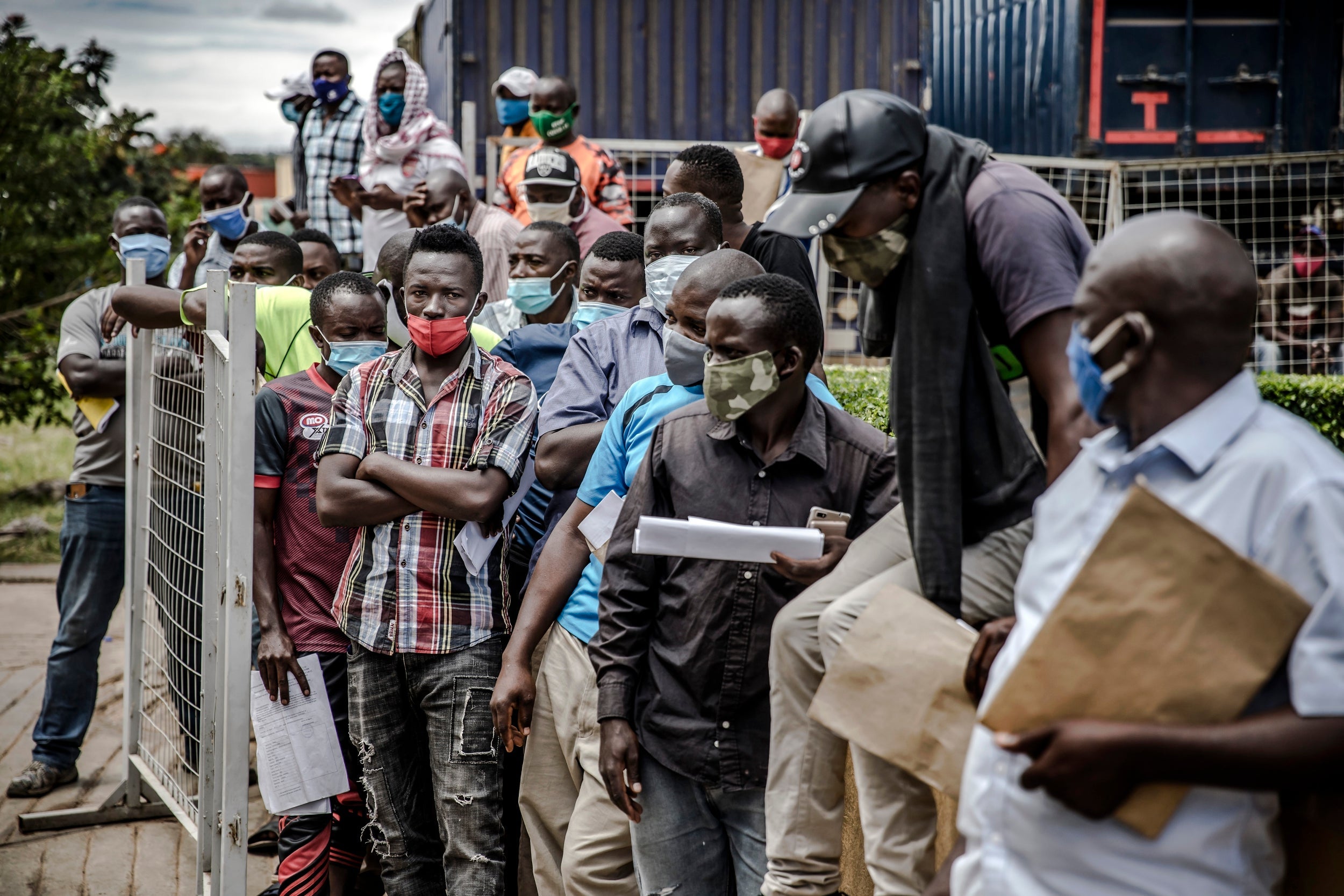
When Habibu Juma Ali lined up his truck full of Whitedent toothpaste behind hundreds of others waiting to cross the border from Tanzania into Kenya, he didn’t expect to wait two weeks to get tested for the novel coronavirus.
Truckers are permitted to drive across the otherwise-closed border between east Africa’s two biggest countries, but for the first two months of the pandemic, they had to get tested at the crossing. More than 150 tested positive and were turned back. The rest spent interminable days waiting for their results.
Ali has spent his days on both the Kenyan and Tanzanian sides of the border town of Namanga, where, when you’re on foot, you can cross the border as easily as crossing a road. He has bought food at shops, exchanged money at banks and, at night, he sleeps huddled with other drivers on cardboard mats underneath his truck. They cook and share meals with newcomers as the line of waiting trucks grows. Others find racier ways to pass the time – chewing khat, shooting dice, hiring sex workers.
The truckers’ growing web of interactions points to a dilemma at international borders: how to let essential trade through without the virus slipping in with it. At a meeting to resolve the growing crisis last week, Kenya and Tanzania agreed that starting next week, drivers will have to get negative test certificates before starting their journeys. To many of the thousands of truckers who already spent days or weeks in Namanga waiting for tests, that decision will have come too late.
“If my results come back positive, who can say how many people I’d have infected?” says Ali. “I’m almost sure most of us here have now got the virus.”
The porous border, inefficient testing and limited contact tracing made this town an ideal place for the coronavirus to spread. Truckers say the long waits left them more susceptible to the virus and cost them time and money. The town’s business people, who interact with them on a daily basis, were caught between fear of contagion and unwillingness to give up their livelihoods.
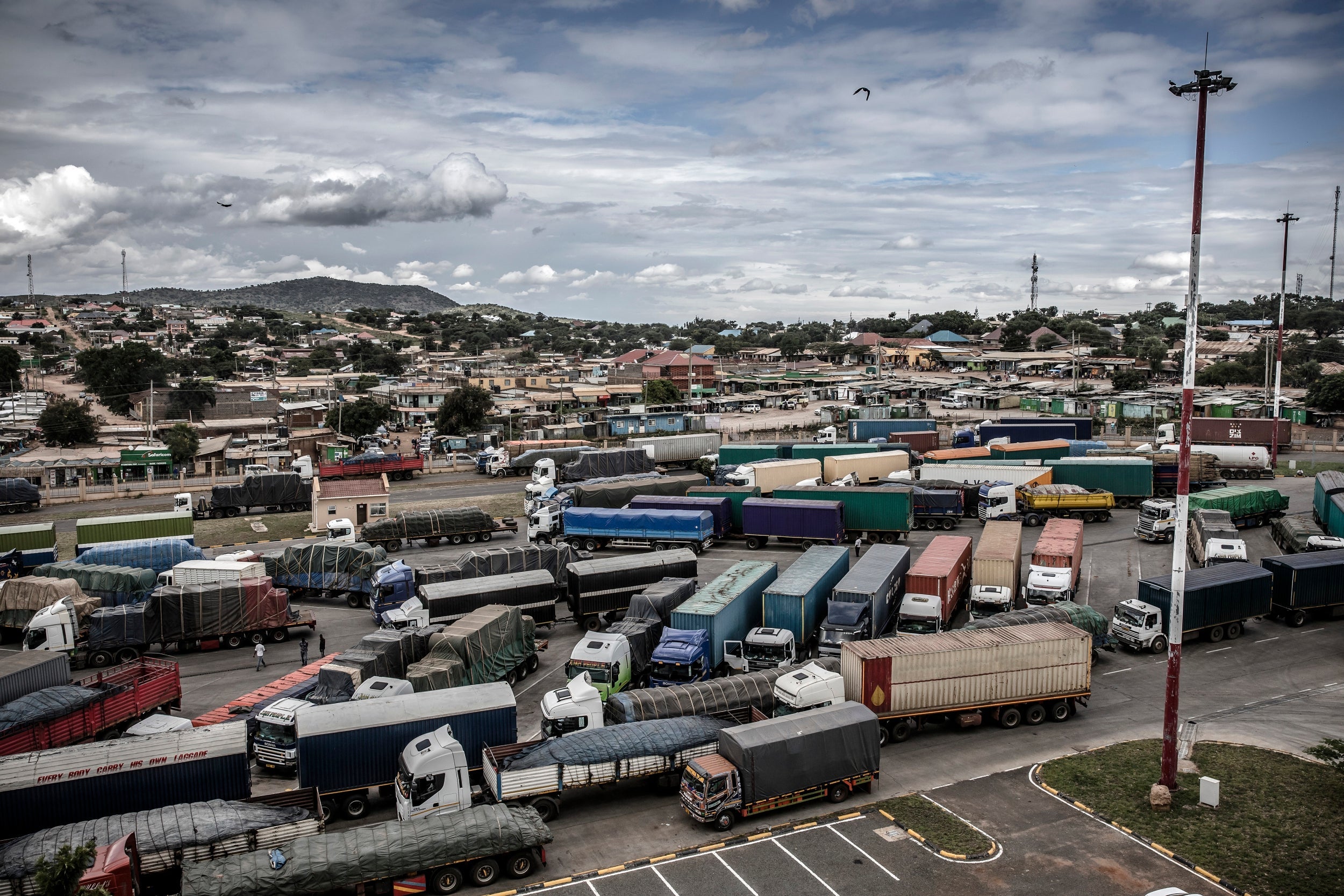
Truck drivers distribute goods but also sometimes diseases, as became especially clear during HIV’s spread in Africa, where they carry the virus at double the rate of the general population. Truckers’ contacts are harder to trace than people who’ve travelled by aeroplane, for instance, where passenger lists are available. In Namanga, truck drivers have blended into the town as they wait, making contact tracing nearly impossible.
Kenya’s tests at the border have been the only real indication of the extent of the outbreak in Tanzania: the government hasn’t released data on new cases since 29 April. The Tanzanian president, John Magufuli, has said numbers are falling, but a US Embassy statement last week said many hospitals in the former capital, Dar es Salaam, had been overwhelmed and that the likelihood of contracting the virus in that city was “extremely high”.
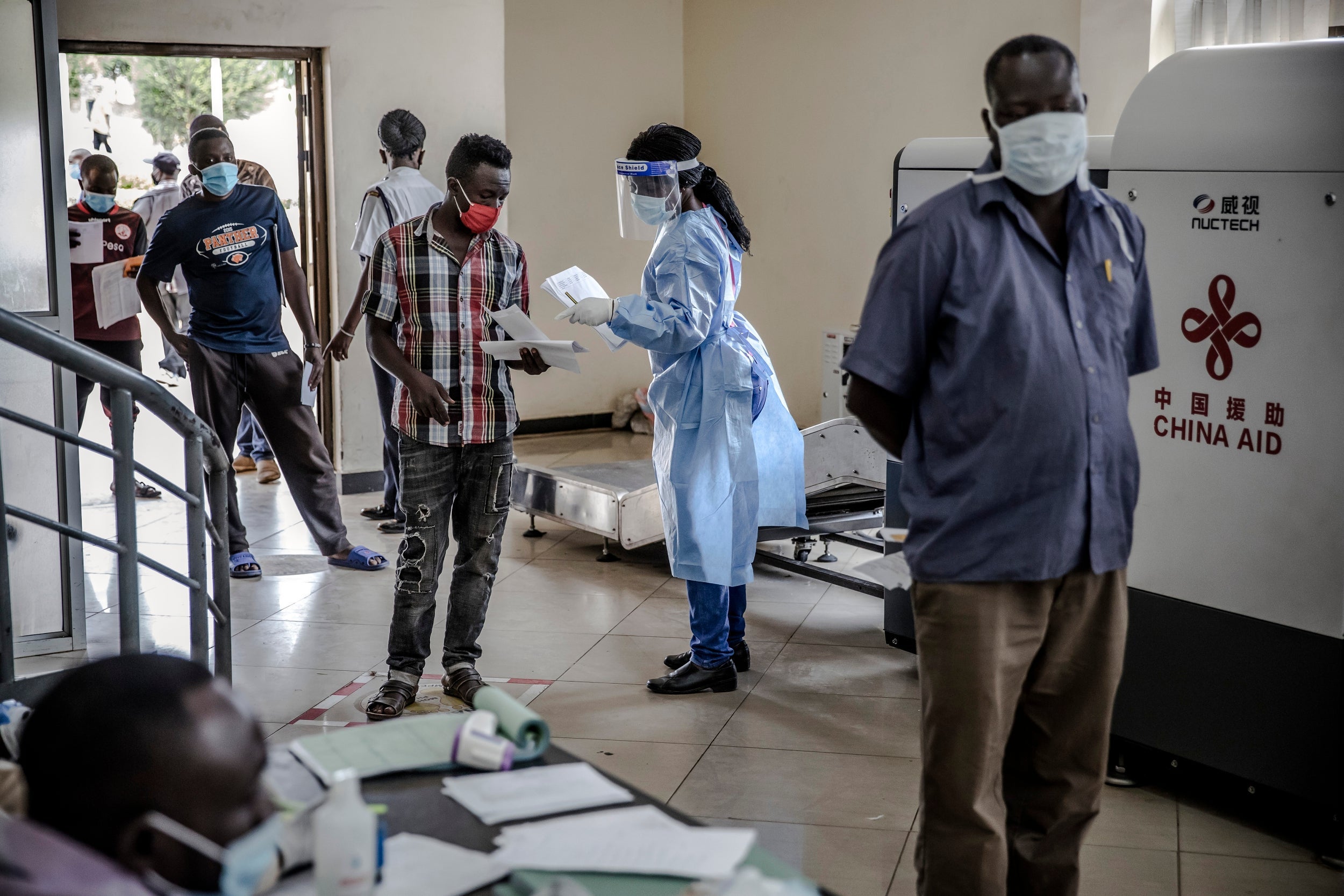
Tanzania has taken fewer day-to-day measures to control the virus’ spread than Kenya, which has a dusk-to-dawn curfew, mandatory mask-wearing and localised lockdowns. Kenya has over 1,100 confirmed cases and has been generally praised for the seriousness of its response, despite crackdowns on curfew offenders that have killed more than a dozen people and evictions of slum dwellers who’ve been left homeless at a time when hygiene and sanitation are paramount.
In the days I’ve been waiting, where have I not been? I have been all over. Maybe the virus can be all over, too
In Namanga, Kenya only traces contacts of positive cases, and the lag in getting results means truckers can rack up hundreds of contacts before knowing their status. And because Kenyan authorities simply turn around infected Tanzanian truck drivers instead of quarantining them at the border, they also lose the opportunity to interview them in person about contacts.
“Contacts are traced using phones or physically by community health volunteers, area leaders or security agencies,” says Esther Somoire, who directs health response in the Kenyan county where Namanga is. “But it’s complicated, especially at international borders like Namanga.”
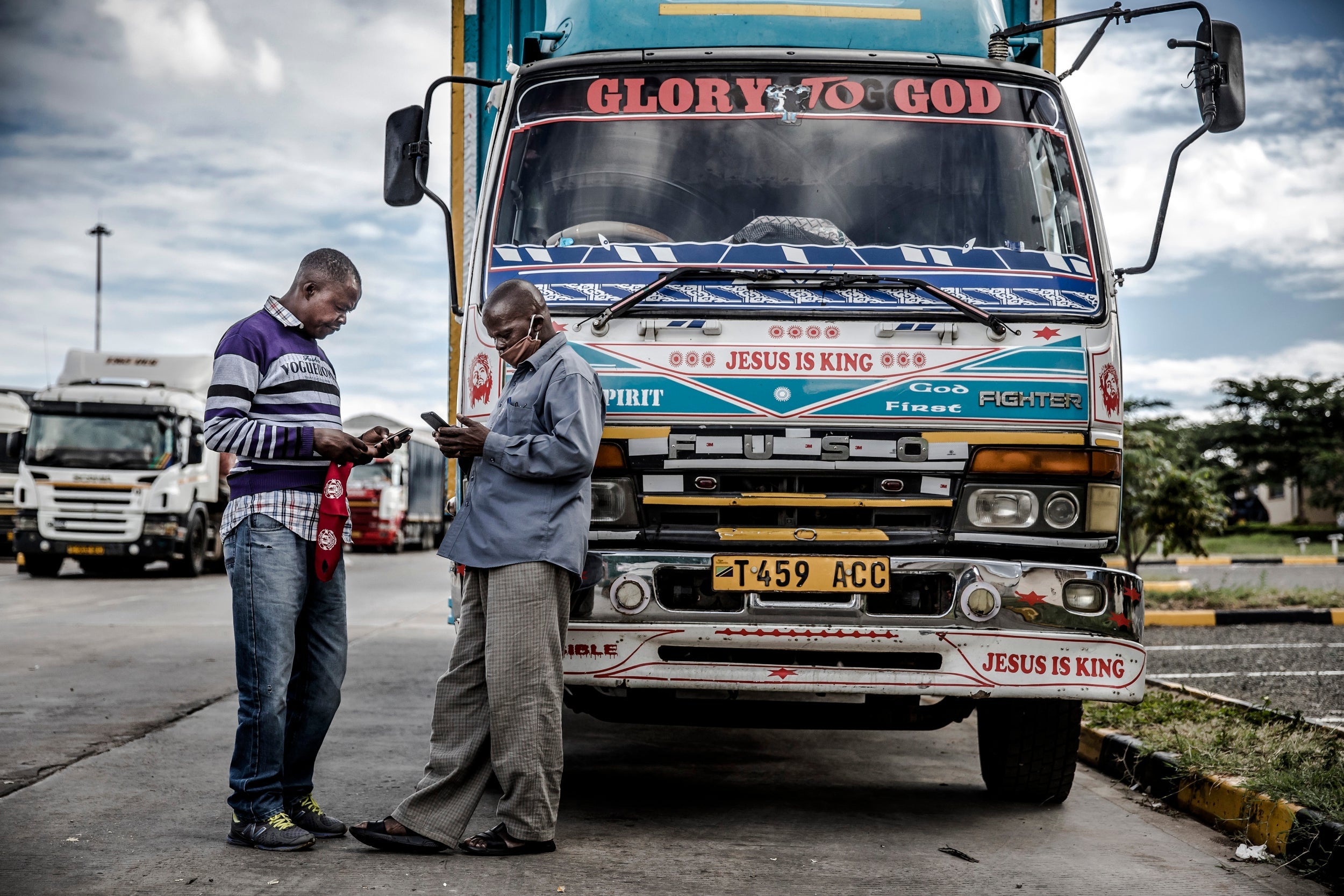
The growing number of positive cases at the border escalated into a confrontation between the Kenyan and Tanzanian governments. A Tanzanian regional government official recently said that Kenya was falsely reporting positive test results for Tanzanian truckers as “a deliberate sabotage strategy designed by Kenya against our tourism industry” and that the government had done its own tests on those drivers and they came back negative. The two countries compete over lucrative wildlife tourism.
In his daily briefings, Kenya’s health minister, Mutahi Kagwe, has called the border posts “hot spots” but has offered assurances that diligent testing means infected Tanzanian truck drivers are not “in our midst”. Last Friday’s agreement stipulated that the results of all further tests of truck drivers will be released publicly but “without mentioning the nationality of the infected”.
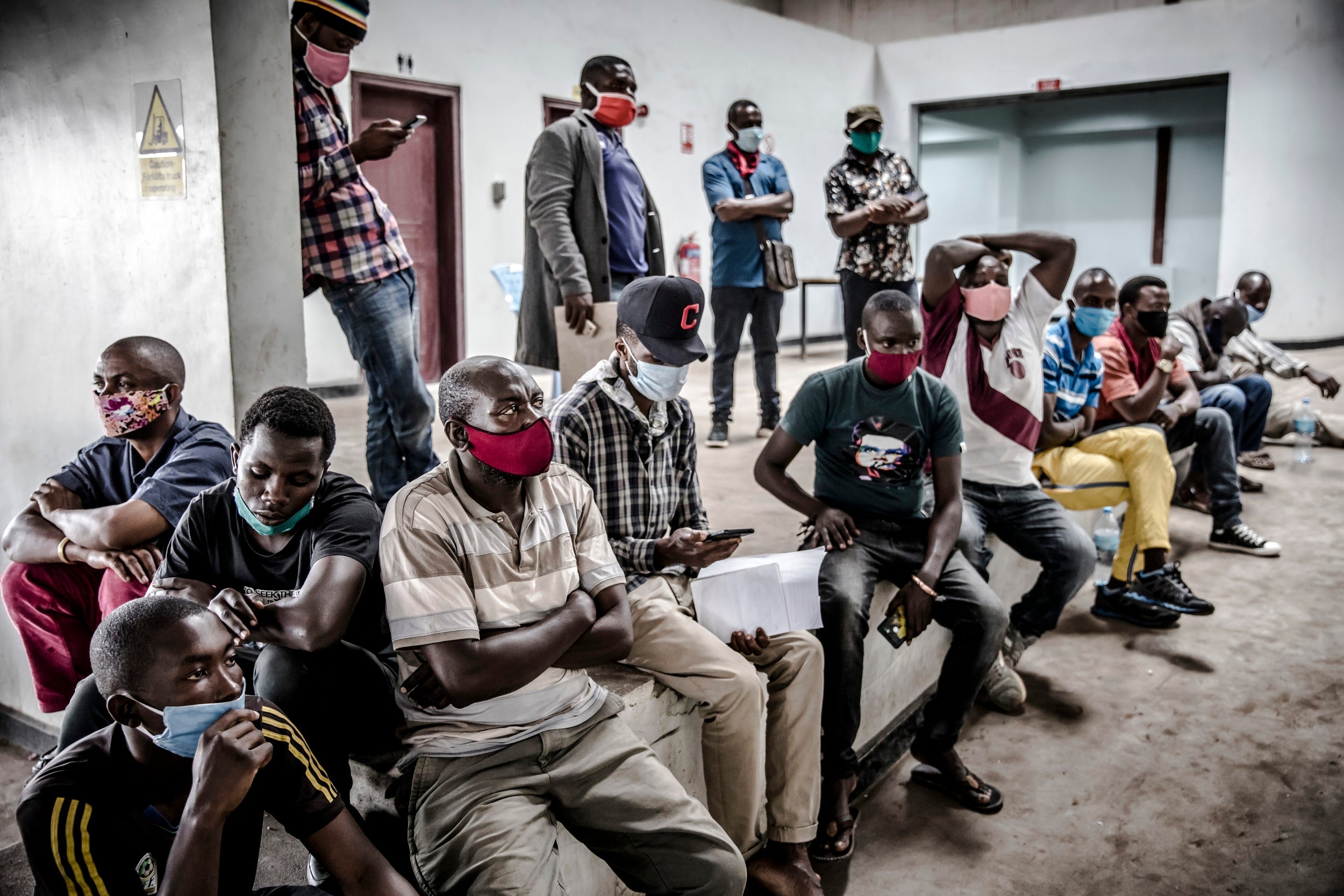
In Europe, many countries have exempted truck drivers transporting goods from checks at their borders. The United States and Canada don’t test truckers crossing their 5,500-mile border. In east Africa, though, testing is more common: Uganda has found dozens of infected Kenyan truck drivers, and Zambia closed its border to Tanzanian truckers after an outbreak at the border created a hot spot there.
Truckers like Ali who are hoping to enter Kenya are at wits’ end as they wait hours for health officials to take throat swabs. Dozens of them have been told to wait in a bare concrete room with no seats. Some crouch with their heads in their hands, trying to nap while waiting. When a health official shows up, he asks the drivers to practice social distancing, and the crowd lunged at him, many saying it was ridiculous to expect them to distance when they weren’t even given a place to sit.
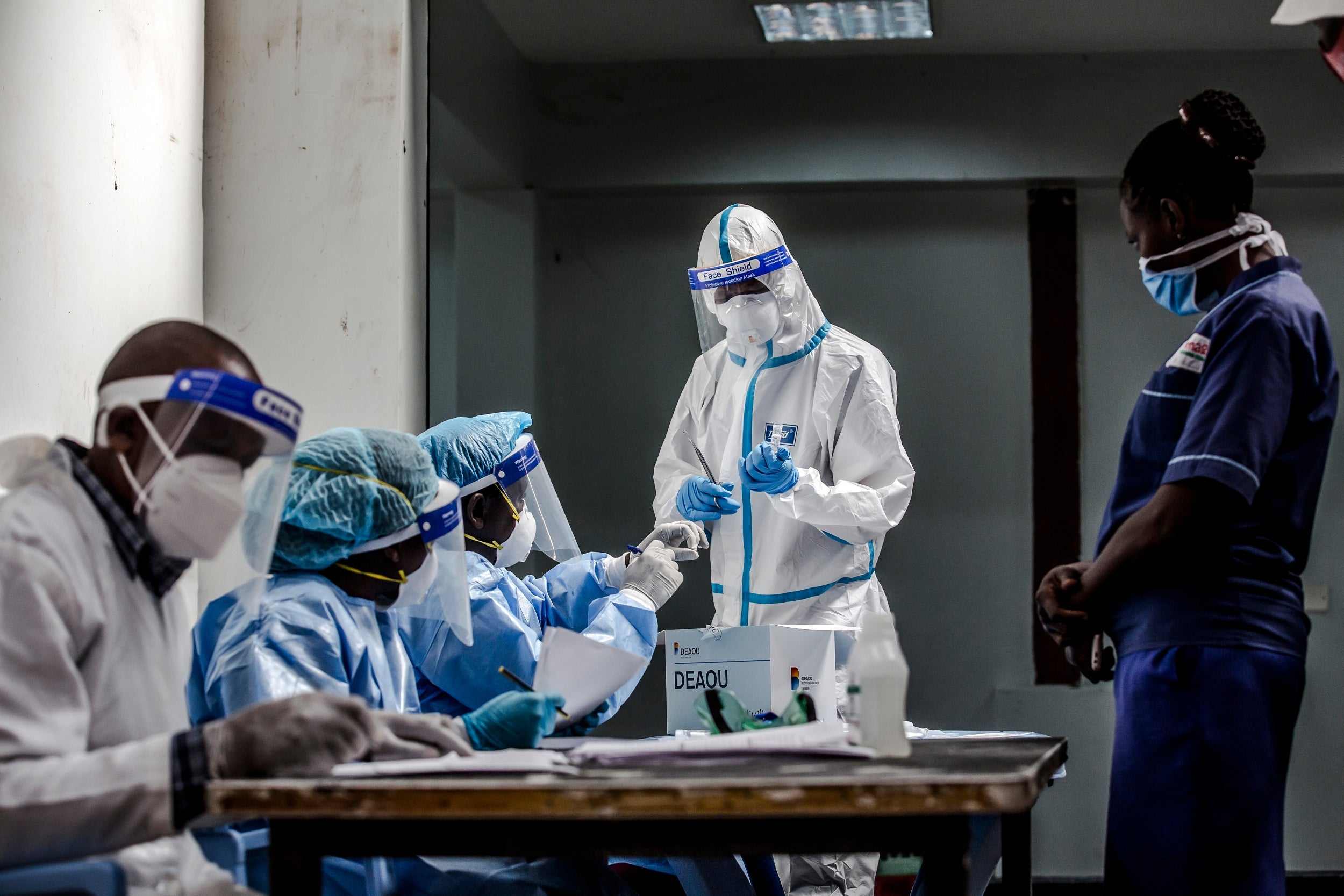
“Really, honestly, you are not preventing, you are spreading,” says Robert Kimani, a Kenyan driver transporting tomatoes from Iringa, in central Tanzania, who had his own reason to be angry. He had initially been tested five days ago, but when results were announced, his name was missing from the list.
“There were four of us like that. They didn’t even have the courtesy to tell me what happened,” he says in an interview later. “In the days I’ve been waiting, where have I not been? I have been all over. Maybe the virus can be all over, too.”
Kenyan health officials have declined to comment on the missing results.
Everyone who relies on the border town’s economy, from shop owners to sex workers, are warily continuing business as usual. For most, that involves crossing the invisible border that runs through it.
Jenny Heri and Marcy Mwajuma Kioko say they get paid to have sex with six to 10 trucker clients a day, mostly Tanzanians. Last Wednesday, they were on the Kenyan side to pick up hundreds of condoms at a government clinic, as well as change Tanzanian shillings into Kenyan shillings to wire home to their children. Kioko put some of the condoms in a dispenser in a men’s bathroom at the entrance to the border post before looking for more clients among the drivers waiting on the Tanzanian side.
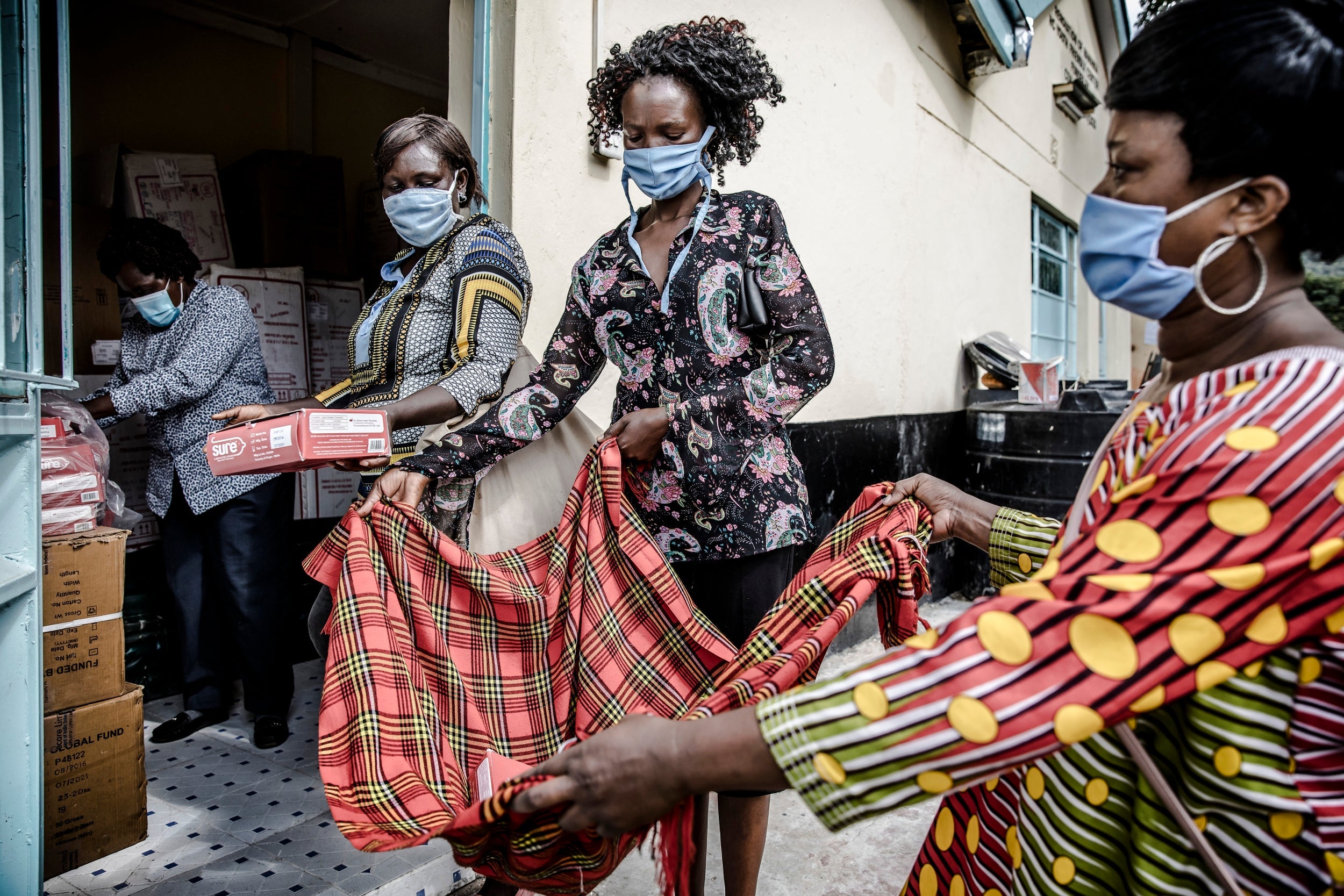
Heri says she and other sex workers have adopted new practices like not facing clients while having sex and sanitising the parts of their bodies their clients touch, but that they know they were putting themselves at high risk.
“We know it’s not perfect,” she says. “But this job we do, we do to make enough so our kids don’t suffer.”
Business people in Namanga who interacted with Kimani, the driver who says his first test sample went missing, describe a deep sense of worry about coming into contact with so many truck drivers on a daily basis.
“If they are really serious, they would follow up with us,” says Elizabeth Wanjiku, who runs a small money exchange. “Or government should give us money to stay home if they want to protect us.”
Unlike Ali, who sleeps under his truck, Kimani can afford to stay at Joseph Kitalama’s guesthouse, where sanitiser is provided. But Kitalama’s rooms are often rented and shared by strangers looking to save money.
“People are doing so much to protect themselves – washing hands all the time, making their own masks out of cloth,” says Kitalama. “We are doing our best, but the government should also do its part.”
© The Washington Post
Join our commenting forum
Join thought-provoking conversations, follow other Independent readers and see their replies
Comments
Bookmark popover
Removed from bookmarks